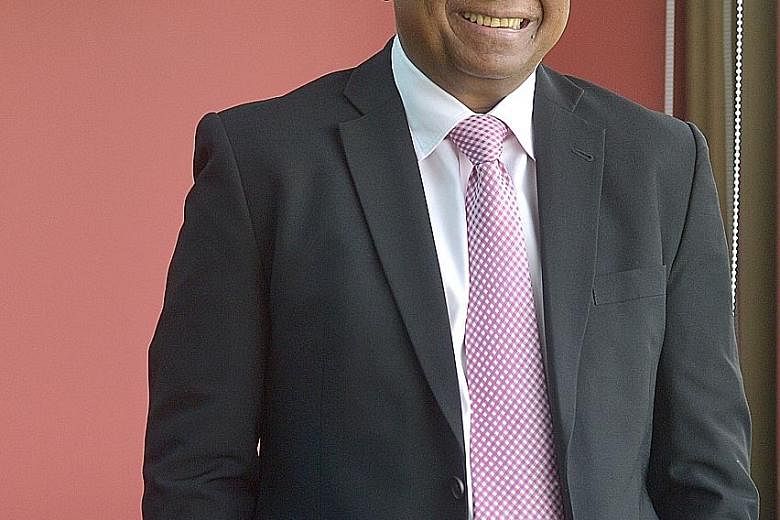When Mr Richard Magnus (photo) retired in March last year as chairman of the Casino Regulatory Authority after seven years in office, he left a robust casino regulatory regime that has been referenced by many other jurisdictions and which undergirds two of the world's most profitable casinos - Marina Bay Sands and Resorts World Sentosa.
Mr Magnus, who declined to divulge his age but is believed to be in his early 70s, was ever mindful of fulfilling the Government's commitments made during the integrated resort (IR) debate in 2005 on concerns over law and order and the need for social safeguards.
As chairman since the CRA was set up in 2008, Mr Magnus said he and his team had to, in short order, ramp up manpower and competencies and develop a regulatory regime that suited Singapore.
Investigations and probity checks to assess the suitability of casino operators, associates and related business entities were what Mr Magnus called "a necessary arm of the law" because of the transnational character of the industry.
"One of the things we insisted on was probity checks on the individuals and companies involved in the running of the casinos in Singapore," he told The Straits Times.
"It means knowing well who makes the decisions, exercises influence and manages the operations of the casinos here. It ensures that there are no untoward influences on the industry. The industry generally involves significant flows of money, including across borders when there are foreign patrons. We have arrangements with other jurisdictions to get the information that we need," said Mr Magnus, a former senior district judge.
Singapore keeps a close tab on industry developments because it needs to know if the casino operators here are over-extended elsewhere.
"Secondly, we don't want them to become complacent. We want the operators to keep it fresh and bring more tourists to Singapore," he said.
Seven years on, Mr Magnus decided it was "time for someone new to take over, someone fresh who will have a new perspective".
Mr Lee Tzu Yang, who had served as the statutory board's deputy chairman, succeeded Mr Magnus last April. Formerly chairman of Shell Companies in Singapore, Mr Lee serves as chairman of the Esplanade and the Workplace Safety and Health Council.
As for Mr Magnus, he is currently chairman of the Public Transport Council. He has three grandchildren, and enjoys doing community work, reading, working out at the gym and exploring Singapore on public transport.
Regulators of the casino industry have faced increasingly complex challenges, given the globalised nature of the industry. In the light of upcoming regional competition, Mr Magnus said: "We need fresh eyes to look at that, and to ensure we have a regulatory framework that continues to work well for us."
He added: "Casino operators, which in the past had operated primarily in the US, have expanded to new geographies as governments opened up the gaming industry to foreign investors, developers and operators. As a result, casino operators are increasingly owning and operating properties in different countries."
Las Vegas Sands, with properties in the United States, Macau and Singapore, has indicated strong interest in Japan and South Korea. Genting, which operates casinos in the US, Britain, Malaysia, Singapore and the Philippines, is now partnering Landing International to develop an IR in South Korea.
"This meant that CRA and other gaming regulators were dealing with the same regulated entities and facing the same issues and challenges," he said.
A strong regulatory regime in Singapore coupled with a low exposure to junket players also helped prevent the sort of carnage that Macau has experienced. The two IRs here, by comparison, are still doing well despite slowing visitor numbers.
"Looking at their recent reported financial results, the two operators continue to do well in a challenging business environment. Having a diversified patron market from the region, such as Indonesia, Malaysia and China, has helped them," he said.
According to the Singapore Tourism Board, tourism receipts grew from $12.6 billion in 2010 to $23.5 billion in 2013. The IRs have supported more than 40,000 jobs throughout the economy and contribute 1.5 per cent to 2 per cent of gross domestic product, Ministry of Trade and Industry data shows.
Mr Magnus is quite proud of the fact that so far, offences committed at the casinos have generally involved theft of gaming chips and cheating at the tables.
"We had prepared to deal with the criminal activities that potentially could increase with the casinos, and the police set up the Casino Crime Investigation Branch to deal with casino-related crime," he said.
In deciding which model to adopt, Mr Magnus said that "for Singapore, the casinos are part of integrated resorts and are economic drivers, contributing to the economy, employment and the growth and development of tourism. This model is different from the Macau model and the Las Vegas laissez faire model".
Indeed, Singapore's introduction of targeted measures, such as exclusion orders and visit limits as part of efforts to combat problem gambling, has caught the attention of the authorities from Japan and Taiwan, which are trying to prevent potential social fallout as they contemplate allowing casino projects to boost their tourism offering.
As at Dec 31 last year, the total number of exclusions were 277,446. Entry levies also appear to have been an effective safeguard as those collected for visitorship by Singaporeans and permanent residents had declined over the years.


